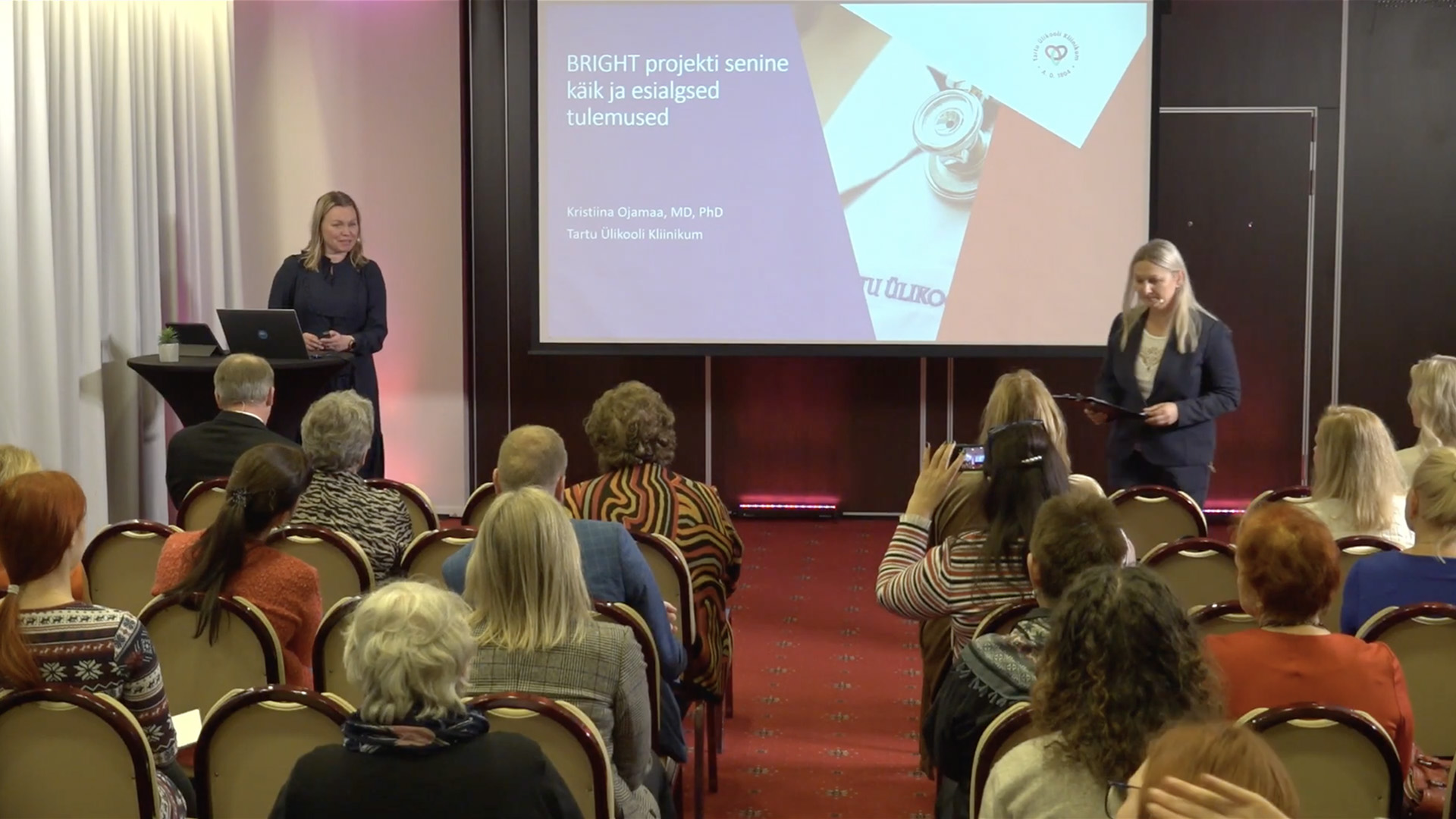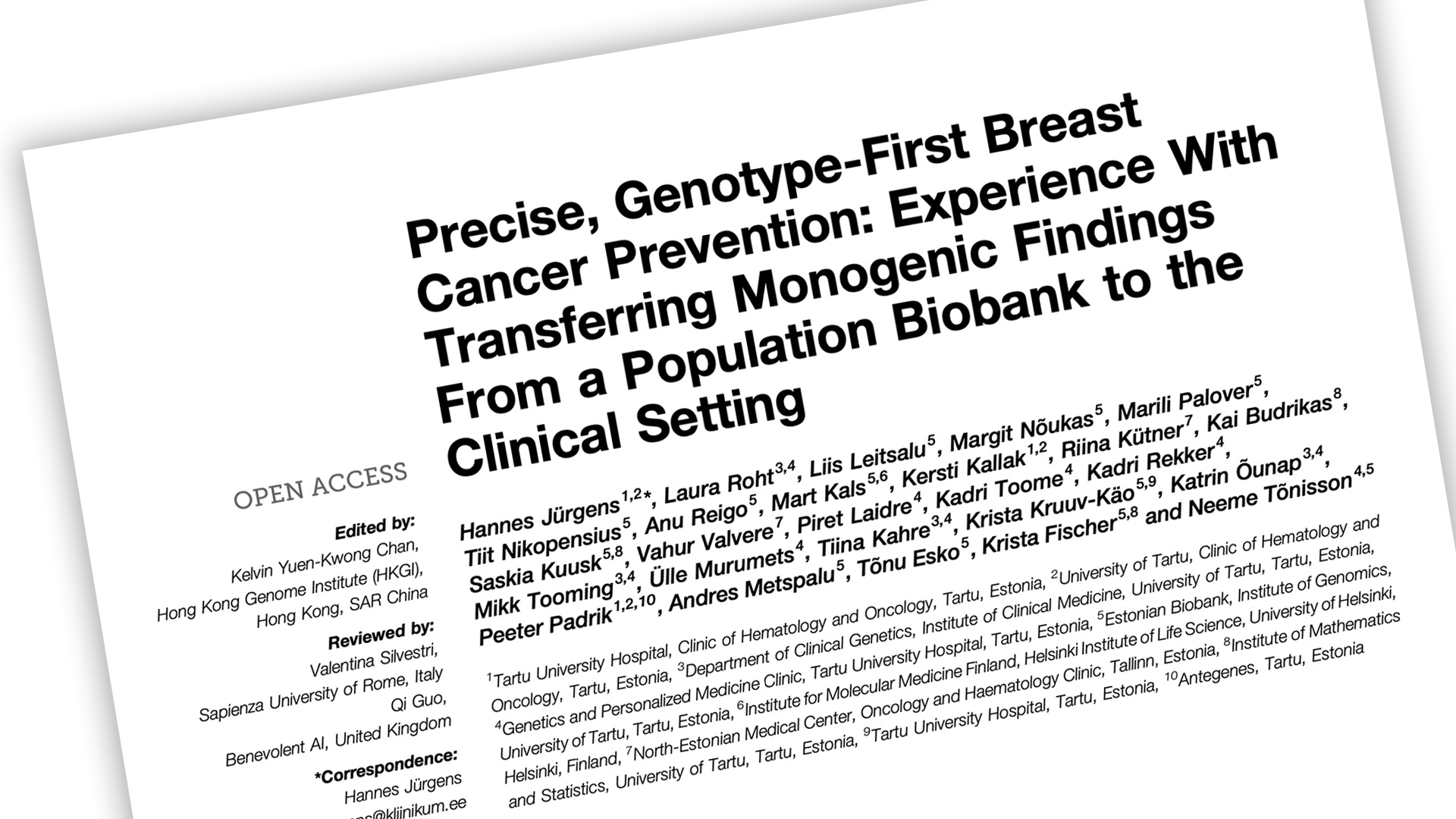Estonian women aged 35-49 can participate in the study “BRIGHT – Be RIGHT with breast cancer management”. The implementation study evaluates the use of a program of genetic risks based personalized breast cancer screening and prevention in Estonian, Swedish and Portuguese healthcare. The study is organized in Estonia by the University of Tartu, medical laboratory Antegenes and Tartu University Hospital. The Estonian Health Insurance Fund participates in the study as an external partner.
The aim of the BRIGHT study is to test the channels and organization of the implementation of precision breast cancer screening based on genetic risks in the healthcare system of European countries. The study analyses a woman’s genetic predisposition to breast cancer, and based on this, personal medical recommendations and options for breast cancer prevention and early detection are provided. Women aged 35 to 49 years who have not had malignant tumors and who have not previously been tested for breast cancer predisposition based on the polygenic risk score can participate in the study. In Estonia, a total of 800 women can participate in the study. Participation in the study and accompanying health services are free of charge.
Breast cancer is the most common malignant tumor among Estonian women and the cause of death due to tumors. To detect breast cancer as early as possible and reduce breast cancer mortality, mammographic screening is organized in Estonia for women aged 50–69 years.
Breast cancer is curable if it’s detected early. “Unfortunately, breast cancer also occurs in younger women, but it is not practical to screen all of them in the same way. Breast cancer has a genetic predisposition, so a woman’s individual genetic breast cancer risk must be considered. That’s why genetic tests are used, with which we can find women with an elevated risk of breast cancer so that they can get to examinations on time,” explained Dr. Kristiina Ojamaa, head of the hematology-oncology clinic at the Tartu University Hospital.
Oncologist Dr. Peeter Padrik, founder of the medical laboratory Antegenes, said that modern breast cancer prevention must be based on personal risk assessments, and not be done the same way for all women. “I’ve seen enough advanced breast cancers that are caught too late and cannot be cured. With precision breast cancer screening, we can change this situation. We have already developed a full breast cancer precision screening service that assesses both a woman’s polygenic risk and, if necessary, the presence of rare monogenic genes that increase the risk of breast cancer. In the BRIGHT study, together with our partners, we are testing the systematic use of this full service in Estonian healthcare and various channels through which we can involve women,” explained Padrik.
If participating in the study, the woman will be given a novel genetic test AnteBC, developed by the Estonian medical laboratory Antegenes, to assess the polygenic predisposition to breast cancer. To perform the test, it is necessary to provide a simple and painless sample taken from the mouth with a cotton swab, from which DNA is extracted. With the AnteBC test, a woman’s personal genetic predisposition to the development of breast cancer is assessed, and based on this, recommendations are given at what age and how to start breast cancer mammographic screening. If the results indicate an increased risk, i.e. the need for screening, a digital referral is issued and the woman can participate in breast cancer early detection screening at the appropriate health facilities. In addition, the need for more comprehensive genetic testing by medical geneticists is specified. All tests and medical activities used in the BRIGHT study are health services recognized in Estonia and the European Union.
“The BRIGHT study is an important project with which we help implement personalized medicine in Estonian healthcare and, on the other hand, take the knowledge to other parts of Europe and immediately test it in their healthcare setting. We actively invite women to join the study, because with your participation you will contribute to the wider adoption of personalized medicine both in Estonia and elsewhere in Europe,” said Dr. Neeme Tõnisson, professor of medical genetics at the University of Tartu, who is the lead researcher of the project.
The Estonian Committee on Bioethics and Human Research has approved the study. Similar studies are also carried out in cooperation with partners in Sweden and Portugal. The study is supported by the European Commission through the EIT Health organization.
How to participate in the study? Read more here: https://brightscreening.eu/osalemine/



